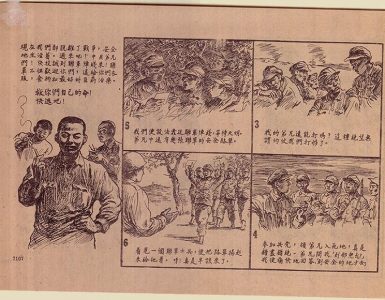 On the 22nd of April 2014 the Marco Civil, the Brazilian “Internet Constitution”, was granted final approval by the Brazilian Senate. The law, which regulates the rights and obligations of network users, was signed by President Dilma Rousseff at the opening of the “NetMundial” conference, a two day event dedicated to worldwide network governance.
On the 22nd of April 2014 the Marco Civil, the Brazilian “Internet Constitution”, was granted final approval by the Brazilian Senate. The law, which regulates the rights and obligations of network users, was signed by President Dilma Rousseff at the opening of the “NetMundial” conference, a two day event dedicated to worldwide network governance.
After a work project lasting five years the regulations protecting privacy, freedom of expression and net neutrality were approved in Sao Paolo. With specific regard to net neutrality, the Brazilian Internet Constitution is considered by civil liberty activists as a revolutionary document in Internet history. The regulations will in fact prevent telecommunication companies from setting up preferential channels to band access as a prerogative of some services and to the detriment of others, as is an emerging trend in the business strategies of connectivity providers worldwide.
The law process speeded up after Edward Snowden’s revelations from which it emerged that the United States were monitoring President Rousseff’s communications.
However, as regards datagate, the Brazilian law proves to be less effective on comparison with its first formulation.
In fact one of the most contested innovations contained in the bill, namely the idea of preventing the storage of Brazilian citizens’ data on servers located abroad, was deleted from the main body of the regulation before Senate approval.
By virtue of the removal of the above mentioned proposal, another article of the regulations has been strengthened, which provides that companies that collect user data generated in Brazil must submit to the Brazilian government regulations on Data Protection, regardless of the location of the servers where the information is stored.
The Marco Civil also contains provisions against the attribution of liability to intermediaries, formalizing that providers are not responsible for the content published online by users, a hotly contested topic for years in Europe but on which Brazil had not yet legislated.
Under the new legislation, service providers will only be liable for third party content if they fail to ensure the removal of material pursuant to a court order.
As we have read in the press, the moment of the President’s signature was accompanied by applause and clamour from the NetMundial audience which was made up of experts and representatives of the major worldwide network companies.
In a speech which briefly preceded Rouseff’s signature, Tim Berners-Lee, the inventor of the World Wide Web, expressed the hope that other governments would follow Brazil’s example and join together in signing the paper described as a wonderful example of how governments can play a positive role in the advancement of civil rights on the Internet and in maintaining an open network.
Following the President’s speech, the European Commissioner Neelie Kroes also expressed her enthusiasm and defined the Marco Civil as “real cause for celebration”.












Add comment